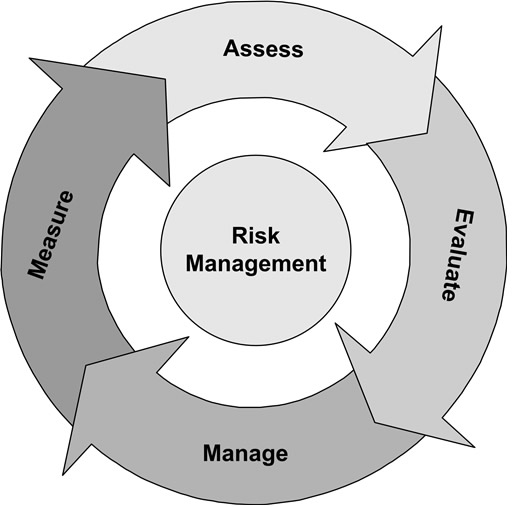Top 10 Risks of Offshore Outsourcing
Offshore outsourcing is growing 20%-25% per annum, with little evidence of slowing. Indeed, while most enterprises experience initial resistance, most technical issues are readily resolved and geopolitical risk is deemed insignificant after careful evaluation. Even the current political fervour about jobs being moved offshore via outsourcing is not impacting the demand or strategy of IT organizations. Offshore outsourcing will continue to grow as a "labour arbitrage" model until 2008/09.
META Trend: During 2004/05, outsourcing will divide into commodity and transformational services. Infrastructure services will mirror grid-computing structures and develop consumption-based pricing (a.k.a., "utility services"). Through 2006/07, transformational services
(e.g., application development maintenance and business process outsourcing) will segment along horizontal (function commonality) and vertical (specialized) business process/services outsourcing functions. Although vendors will attempt to bundle infrastructure with "value" services, clients will demand "line item" pricing by 2008/09.
Through 2004/05, IT organizations will outsource discrete projects/functions offshore (e.g., from application development projects to specific call centre support). Growth will continue at 20%+. Offshore strategies by domestic vendors will shift business from large, integrated outsourcing contracts, but most IT organizations will still develop strategies that focus on pure-play offshore vendors. The top 10 risks of offshore outsourcing are as follows.
1. Cost-Reduction Expectations
The biggest risk with offshore outsourcing has nothing to do with outsourcing
- it involves the expectations the internal organization has about how much
the savings from offshore will be. Unfortunately, many executives assume that
labour arbitrage will yield savings comparable to person-to-person comparison
(e.g., a full-time equivalent in India will cost 40% less) without regard for
the hidden costs and differences in operating models. In reality, most IT organizations
save 15%-25% during the first year; by the third year, cost savings often reach
35%-40% as companies “go up the learning curve” for offshore outsourcing
and modify operations to align to an offshore model.

2. Data Security/Protection
IT organizations evaluating any kind of outsourcing
question whether vendors have sufficiently robust
security practices and if vendors can meet the
security requirements they have internally. While
most IT organizations find offshore vendor security
practices impressive (often exceeding internal
practices), the risk of security breaks or intellectual
property protection is inherently raised when
working in international business. Privacy concerns
must be completely addressed. Although these
issues rarely pose major impediments to outsourcing,
the requirements must be documented and the methods
and integration with vendors defined.
3. Process Discipline (CMM)
The Capability Maturity Model (CMM) becomes an important
measure of a company’s readiness to adopt
an offshore model. Offshore vendors require a standardized
and repeatable model, which is why CMM Level 5
is a common characteristic. META Group observes
that approximately 70% of IT organizations are
at CMM Level 1 - creating a gap that is compensated
for by additional vendor resources on-site. Companies
lacking internal process model maturity will undermine
potential cost savings.
4. Loss of Business Knowledge
Most IT organizations have business knowledge that
resides within the developers of applications.
In some cases, this expertise may be a proprietary
or competitive advantage. Companies must carefully
assess business knowledge and determine if moving
it either outside the company or to an offshore
location will compromise company practices.

A common oversight for IT organizations is a contingency plan - what happens if the vendor, all best intentions and contracts aside, simply fails to deliver. Although such failures are exceptions, they do occur, even with the superb quality methodologies of offshore vendors. When considering outsourcing, IT organizations should assess the implications of vendor failure (i.e., does failure have significant business performance implications?). High risk or exposure might deter the organization from outsourcing, it might shift the outsourcing strategy (e.g., from a single vendor to multiple vendors), or it might drive the company toward outsourcing (if the vendor has specific skills to reduce risks). The results of risk analysis vary between companies; it is the process of risk analysis that is paramount.
6. Scope Creep
There is no such thing as a fixed-price contract.
All outsourcing contracts contain baselines and
assumptions. If the actual work varies from estimates,
the client will pay the difference. This simple
fact has become a major obstacle for IT organizations
that are surprised that the price was not “fixed” or
that the vendor expects to be paid for incremental
scope changes. Most projects change by 10%-15%
during the development cycle.
Utilities, financial services institutions, and healthcare organizations, among others, face various degrees of government oversight. These IT organizations must ensure that the offshore vendor is sensitive to industry-specific requirements and the vendor’s ability to: 1) comply with government regulations; and 2) provide sufficient “transparency” showing that it does comply and is thus accountable during audits. The issue of transparency is becoming more significant as requirements such as the USA PATRIOT Act and the Sarbanes-Oxley Act place greater burdens of accountability on all American corporations.
8. Culture
A representative example: although English is one official language in India,
pronunciation and accents can vary tremendously. Many vendors put call centre
employees through accent training. In addition, cultural differences include
religions, modes of dress, social activities, and even the way a question is
answered. Most leading vendors have cultural education programs, but executives
should not assume that cultural alignment will be insignificant or trivial.

9. Turnover of Key Personnel
Rapid growth among outsourcing vendors has created a
dynamic labour market, especially in Bangalore, India. Key personnel
are usually in demand for new, high-profile projects, or even at
risk of being recruited by other offshore vendors. While offshore
vendors will often quote overall turnover statistics that appear
relatively low, the more important statistic to manage is the turnover
of key personnel on an account. Common turnover levels are in the
15%-20% range, and creating contractual terms around those levels
is a reasonable request. Indeed, META Group has seen recent contracts
that place a “liability” on the
vendor for any personnel that must be replaced. The impact of high turnover
has an indirect cost on the IT organization, which must increase time spend
on knowledge transfer and training new individuals.
10. Knowledge Transfer
The time and effort to transfer knowledge to the vendor
is a cost rarely accounted for by IT organizations. Indeed, we
observe that most IT organizations experience a 20% decline in
productivity during the first year of an agreement, largely due
to time spent transferring both technical and business knowledge
to the vendor. Many offshore vendors are deploying video conferencing
(avoiding travel) and classroom settings (creating one-to-many
transfer) to improve the efficacy of knowledge transfer. In addition,
employee turnover often places a burden on the IT organization
to provide additional information for new team members.
Business Impact: Offshore outsourcing can reduce IT expenditures by 15%-25% within the first year. Longer term, process improvements often make great impacts on both cost savings and the quality of IT services delivered.
Bottom Line: As IT organizations consider the vast benefits and allure of offshore outsourcing, they must balance the risks and uncertainties with the potential for labour arbitrage.
META Group originally published this article on 14 November 2003.
Back Office Fields
- Telemarketing
- Book Keeping
- Data Entry
- Virtual Assistant
- Transcripting
- Call Center Agents
- Email Chat and Support
- Help Desk
- Human Resources
- Proof Reading
IT Fields
- C++
- SQL
- Vb.net
- Web Design
- C#
- Asp.net
- Website Developer
- Java
- I.T Support
- Dreamweaver
General Fields
- Marketing
- SEO Internet Accounting
- Social Networking
- Blogging & Forums
- PPC Internet Marketers
- Technical Support
- Financial Analyst
- Advertising
- and many more...
- Please enquire
